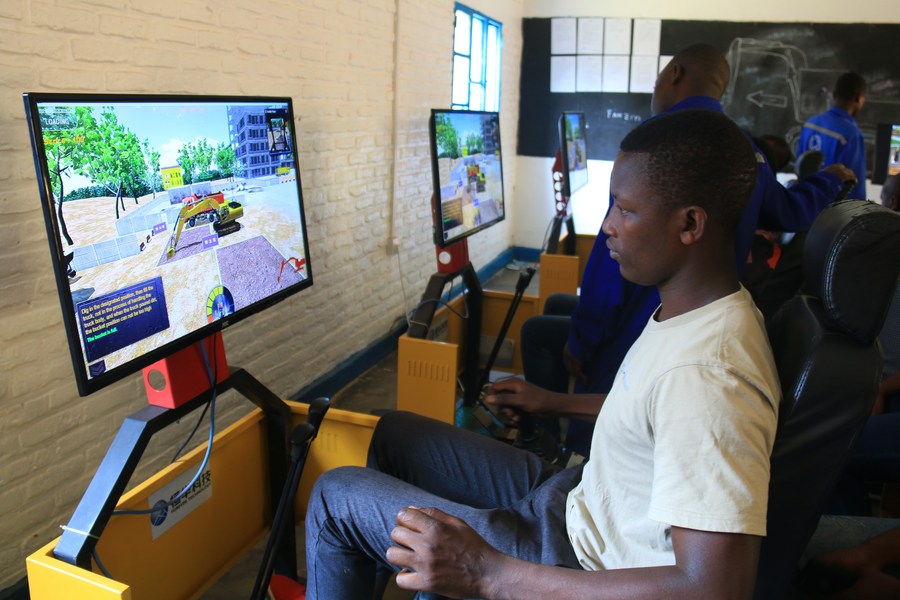
A student learns the operation of heavy machinery through a simulator at Forever TVET Institute in Kigali, Rwanda, July 8, 2022. Established in 2018 by China's Beijing Forever Technology Co., Ltd., the vocational school provides training courses in heavy machinery control, land survey and mapping, industrial electricity, road construction, computer engineering, among others. (Xinhua/Ji Li)
SHENZHEN, Nov. 24 (Xinhua) -- The Chinese government is making a quantum leap in policy by promoting the participation of non-state providers in Technical and Vocational Education and Training (TVET), said Shahbaz Khan, director and representative of the UNESCO Beijing Office.
He made the remarks in his opening speech at the 2022 Belt and Road International Conference on Technical and Vocational Education and Training (TVET) on Thursday.
Noting that China has remarkable experience in transforming institutions through TVET, Khan praised the Chinese government for its sharing of benefits and its promotion of people-to-people exchanges following the principles of "equity and inclusion, mutual benefit, and quality education for all, leaving no one behind."
"With this strong transformational experience to offer, I have no doubt that partnerships between Chinese entities and those from countries along the Belt and Road will enhance skills development and accelerate TVET reforms," Khan added.
In his speech, he highlighted the importance of knowledge exchanges and partnerships in a world that is "more interconnected and faster than ever before."
There is an urgent need to upgrade and improve the quality of TVET institutions in Belt and Road countries to meet needs in bridging the gap between skills acquired and skills available, and the gap between skills needed in the labor market today and skills needed in the labor market tomorrow, he noted.
Themed "New Connotation, New Value and New Mission," the two-day conference has attracted government officials, experts, scholars, and representatives of vocational colleges and enterprises from 40 countries and regions around the world. Offline activities are being jointly held in Beijing, Shanghai, Shenzhen and Quanzhou in China.




 A single purchase
A single purchase









